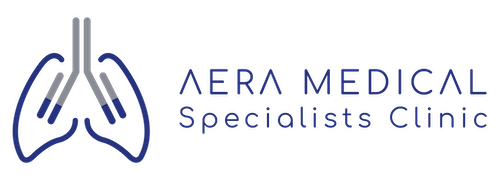Conditions we treat
Our Services
Conditions we treat

Environmental Allergies (Seasonal and Perennial)
Allergic rhinitis, often referred to as Hay Fever, is an overreaction of the immune system that tends to occur during certain times of the year (usually spring and/or summer), in your home and/or work environmental. Common allergens include pollen, pets, dust mites or molds.

Food Allergies
A food allergy is caused by your immune system incorrectly recognizing a food as harmful. Your body then reacts by producing allergy antibodies (IgE) against that food. The symptoms of an allergic reaction include hives, swelling, vomiting, problems breathing and fainting. These reactions can be life-threatening.

Drug Allergies
A drug allergy is an immune system response to a pharmaceutical and/or formulation (excipient) agent. Assessment and testing can be done for various medication allergies including penicillin, anesthetics, NSAIDs/ASA and vaccines.

Venom Allergies
Allergic reactions to insect stings can be assessed, including reactions to honey bee, wasp, yellow-faced hornet, white-faced hornet and yellow jacket.

About our Clinic
Meet the wonderful staff at Aera Medical

Resources
Useful related programs and resources

Contact Us
Get in touch to schedule your visit

Chronic Hives and Swelling
Hives are a skin reaction that leads to red, swollen welts on the body. Approximately 1% of the general population can experience this condition. Although it is not dangerous, it can cause significant discomfort and decrease a person’s quality of life.

Atopic Dermatitis
This chronic inflammatory skin condition is characterized by dry skin, with patches on the skin that are red and intensely itchy. In Canada, about 10% of infants and children have a diagnosis of atopic dermatitis. This skin condition can also occur in adulthood.

Immunodeficiency
This is described as a breakdown in one or more parts of the immune system that can pre-dispose an individual to recurrent and/or severe infections.

Asthma
Asthma is a chronic inflammatory airway disease that can cause shortness of breath, wheeze, cough and/or chest tightness. Asthma can have various potential triggers such as cold air, cigarette/environmental smoke, airborne irritants and even allergies. Treatment of asthma is very important as it can prevent hospitalization and life-threatening episodes.

Obstructive Sleep Apnea (OSA)
Sleep apnea is a condition that makes you stop breathing for short periods while you are asleep. In OSA, you stop breathing because your throat narrows or closes. People with this condition do not know that they stop breathing when they are asleep. The most effective treatment for sleep apnea is a device that helps keep your airway open while you sleep, which is called a CPAP (continuous positive airway pressure) machine.

Lung Cancer
Lung cancer is a serious disease and is the leading cause of cancer death in North America. Cigarette smoke causes most lung cancers. When a person has suspected lung cancer, X-rays, imaging scans and blood tests are done. The patient is then referred to a respirologist to have various diagnostic investigations done, including a biopsy through bronchoscopy – a procedure done to remove a small piece of tissue from the tumour so it can be examined under a microscope. If the biopsy is positive for cancer, patients are then assessed at the BC Cancer Agency.

Chronic Obstructive Pulmonary Disease (COPD)
COPD is a condition in which the airways in the lungs become inflamed and narrows and the air sacs become damaged. Smoking cigarettes is the most common cause of COPD. As the lungs become more damaged over time, it becomes increasingly difficult to breathe. The first and most important part of any treatment plan for COPD is to stop smoking.

Contact Dermatitis
Contact dermatitis is an inflammatory skin condition that occurs following direct contact between a substance and the surface of the skin. Irritant contact dermatitis is a result of immediate inflammation of the skin while allergic contact dermatitis can cause inflammation that is delayed by days. In order to diagnosis the cause of this dermatitis, patch testing is required.
How can we help you?
If you have questions about your allergy or respiratory care, please contact our clinic via telephone or email.
